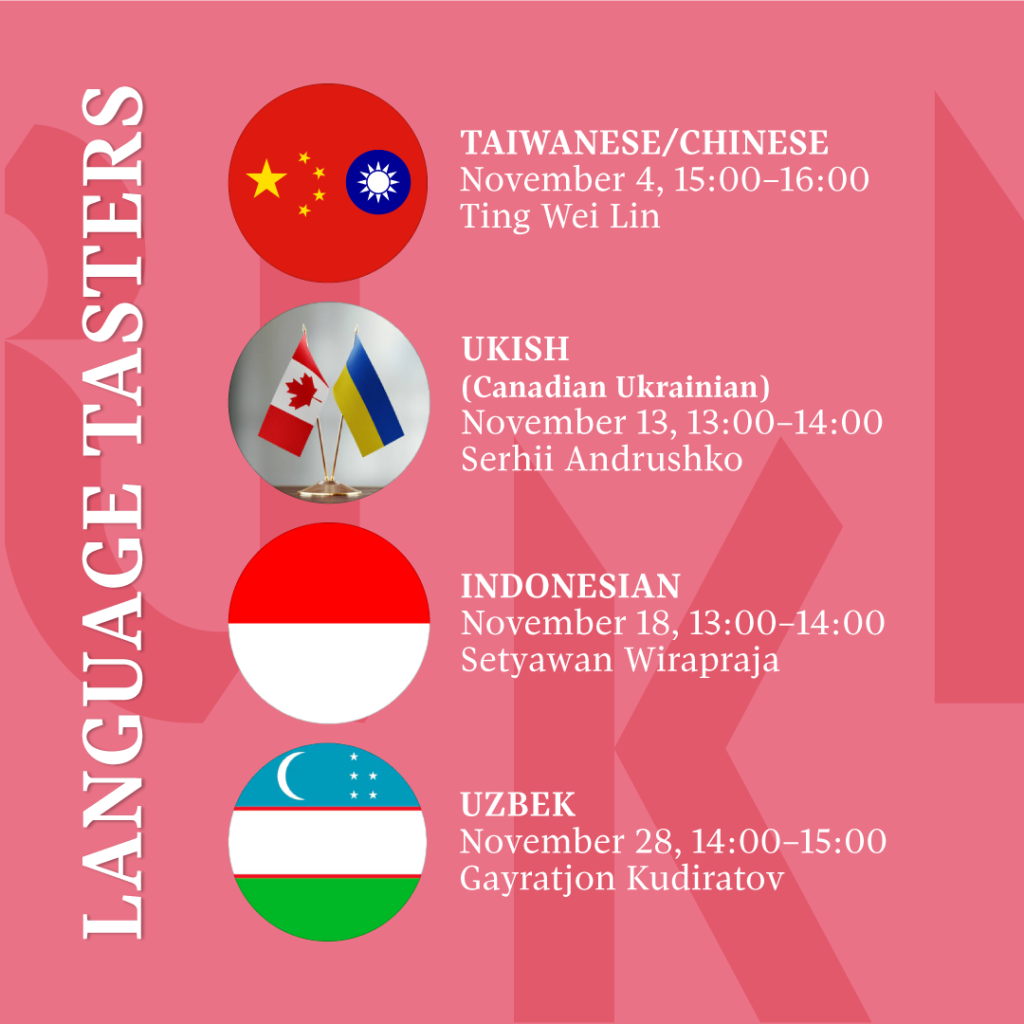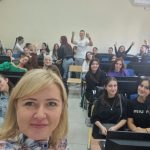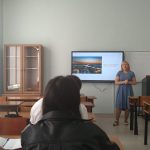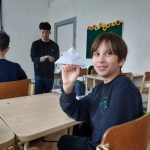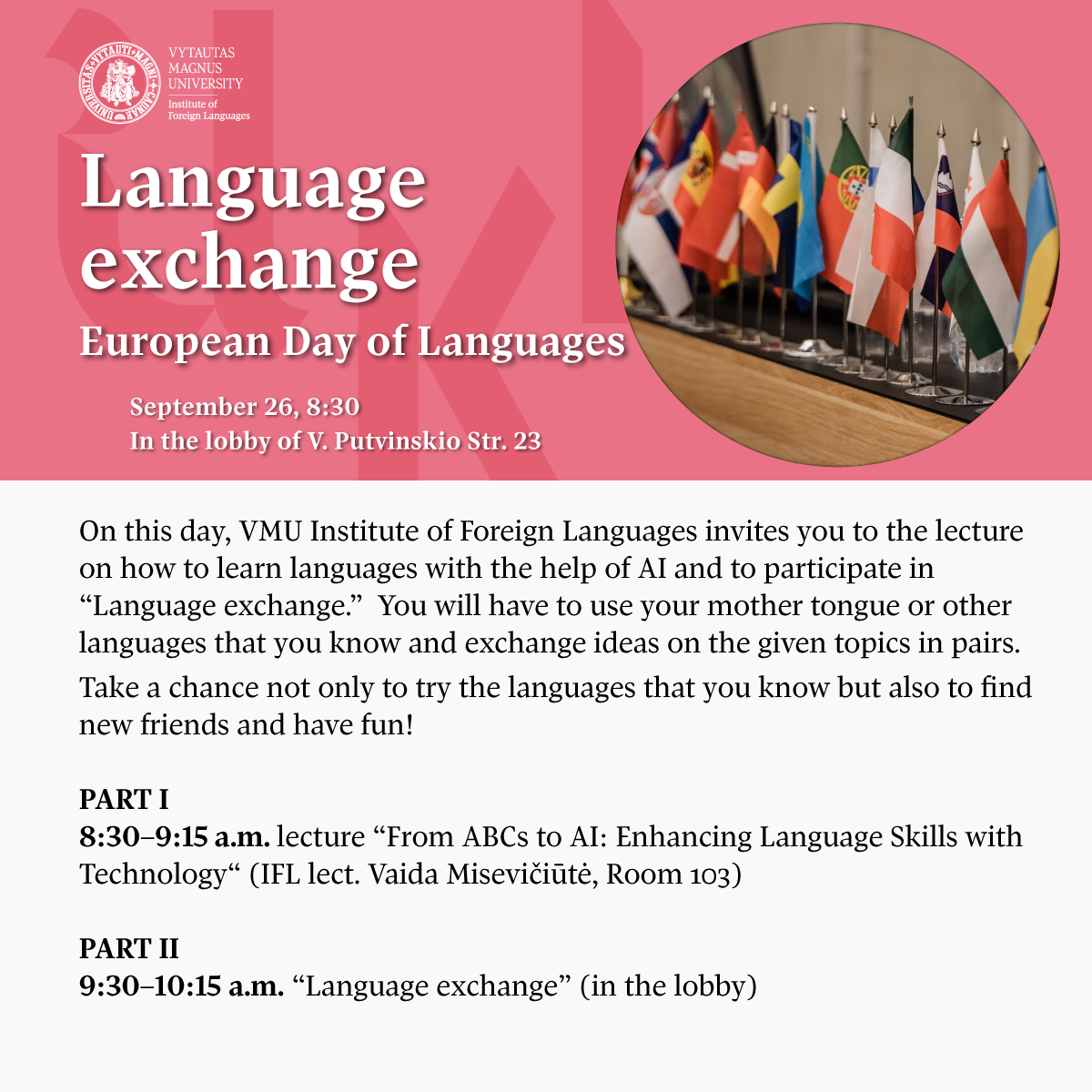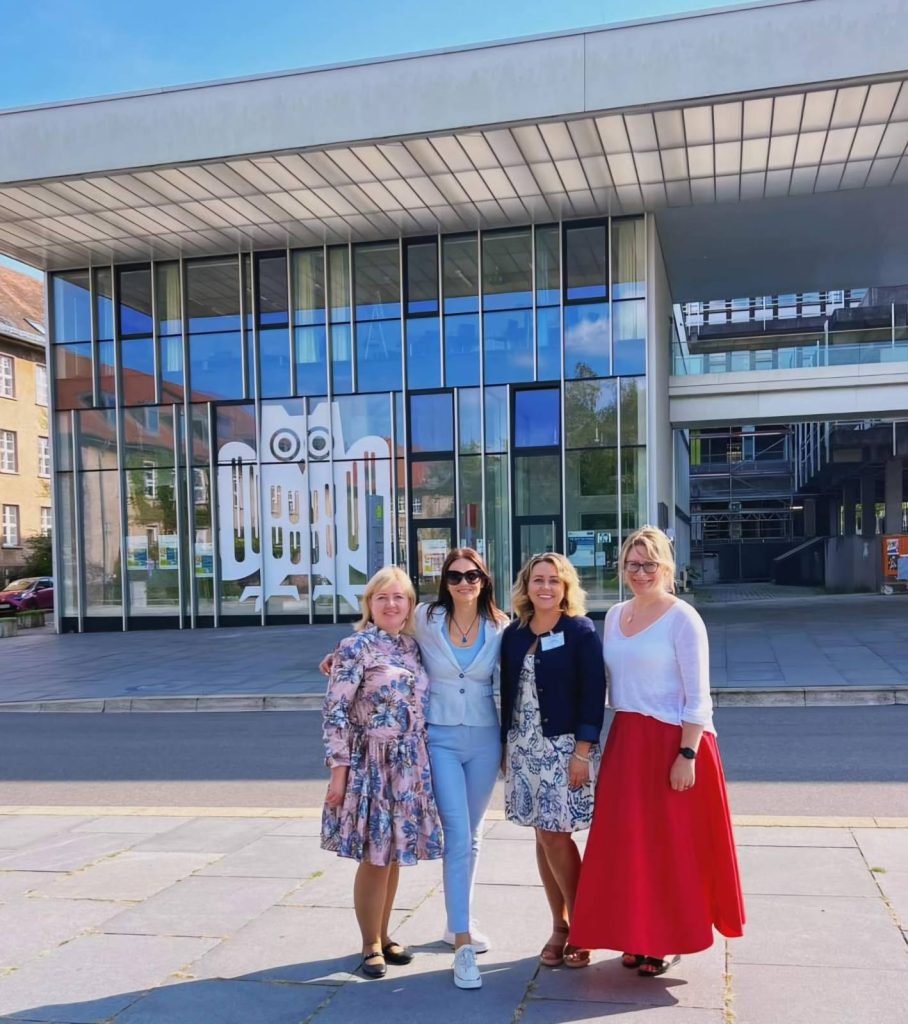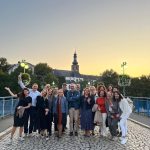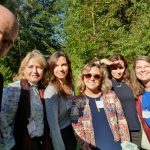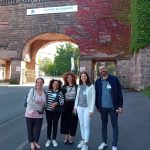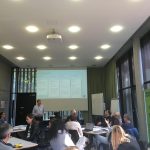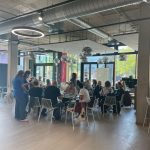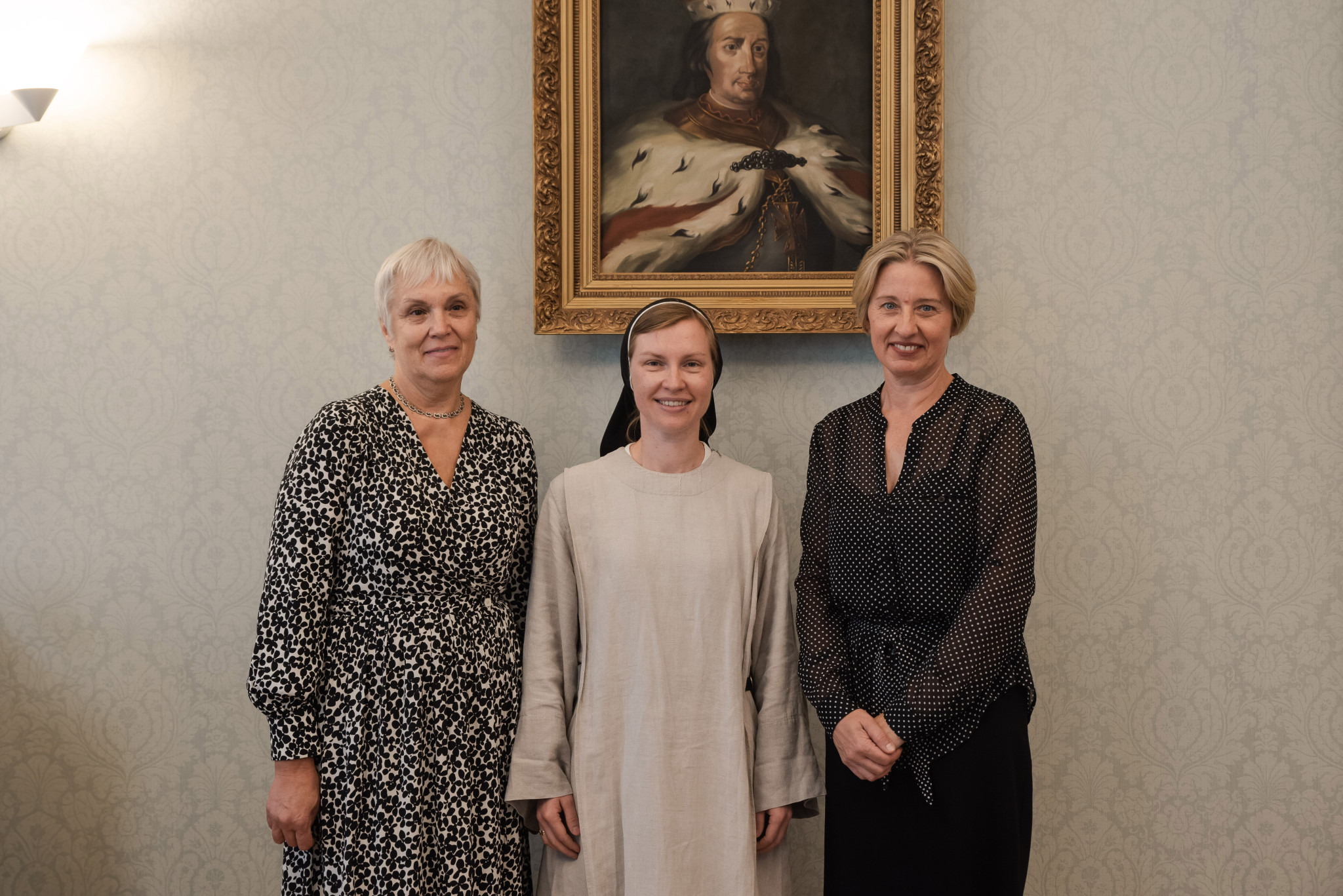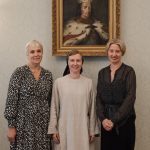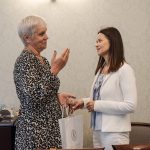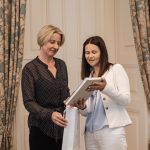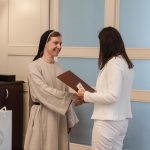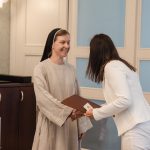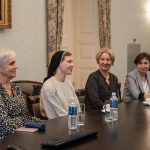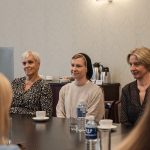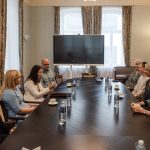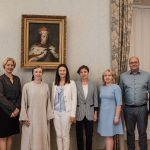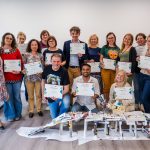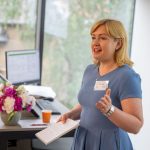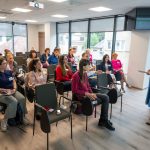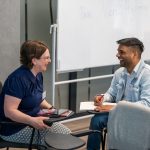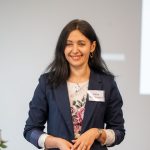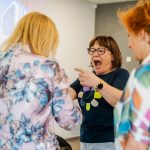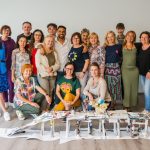Would you like to “taste”… a language?
We are used to tasting or enjoying food. However, is it possible to “taste” a language? For the third year, the Institute of Foreign Languages invites you to participate in language tasters, online events dedicated to minor and lesser-taught languages. Maybe not everyone would dare to learn a rare language, but during this hour-long event, we can find out more about it, hear how words and phrases sound and try to pronounce them ourselves. It is also an opportunity to learn about foreign countries and cultures from native speakers.
This year we invite you to participate in four language tasters: Taiwanese and Chinese, Canadian-Ukrainian dialect, Indonesian and Uzbek. Former or current international VMU students will help us to “taste“ them. All events will be conducted in English.
The events will take place each week of November on MS Teams
Please keep in mind that the time indicated is EET. Please check the time according to your time zone here: https://www.timeanddate.com/worldclock/converter.html
Visit to the University of Tirana
Last week, the IFL Director Teresė Ringailienė visited the University of Tirana, Albania on an Erasmus+ teaching visit, where she gave lectures to English Philology students on language teaching, student engagement and the development of the multilingual competence. She also introduced the students to the Institute of Foreign Languages, study opportunities at VMU and Lithuania. The students not only found out more about the country, but also had the opportunity to taste Lithuanian sweets.
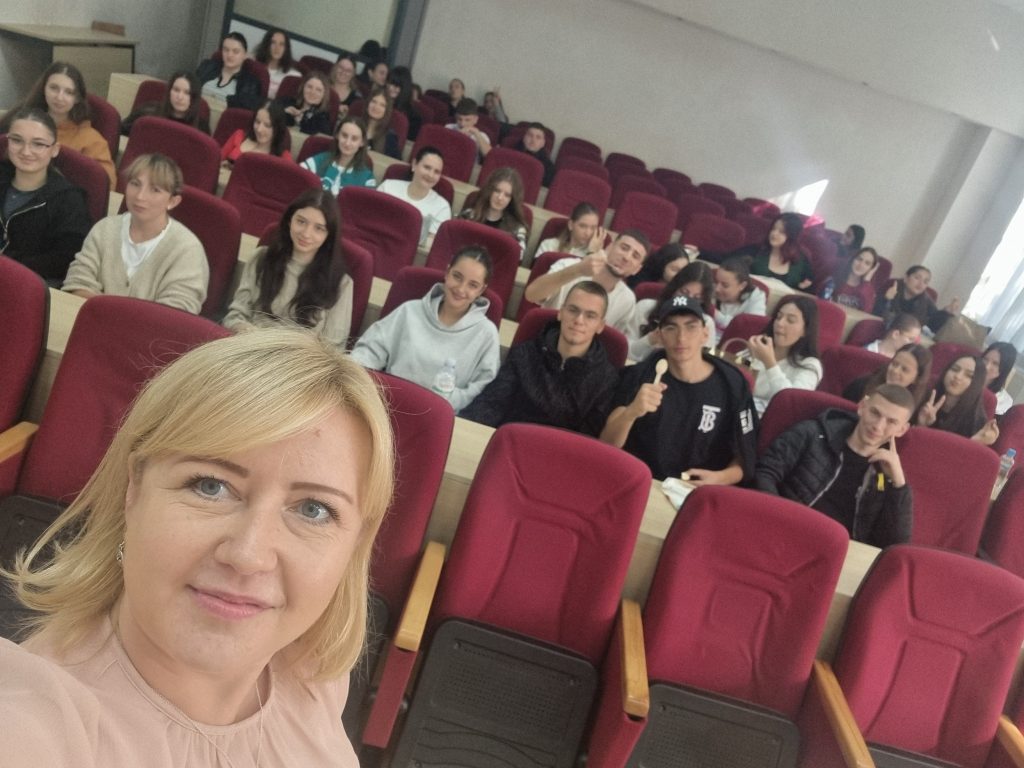 Albania is a beautiful country with a very complex history that we are not very familiar with, even though geographically it is relatively near. Therefore, such visits broaden one’s horizons, allow one to experience a different culture, reflect upon history, establish contacts, share experiences and knowledge and find out things about the unique language: Albanian belongs to the group of Indo-European languages but has no similarity with any other language.
Albania is a beautiful country with a very complex history that we are not very familiar with, even though geographically it is relatively near. Therefore, such visits broaden one’s horizons, allow one to experience a different culture, reflect upon history, establish contacts, share experiences and knowledge and find out things about the unique language: Albanian belongs to the group of Indo-European languages but has no similarity with any other language.
World culture, nature, history and languages
11 October Volodymyr Korsak from Ukraine, Ka Yi Lai from Hong Kong, Miu Ishizuka from Japan, Ting-Wei Lin from Taiwan, and Michelangelo from Italy. Together with the teachers of the secondary school, they taught integrated lessons in language, history, science and science to students in grades 5-8.
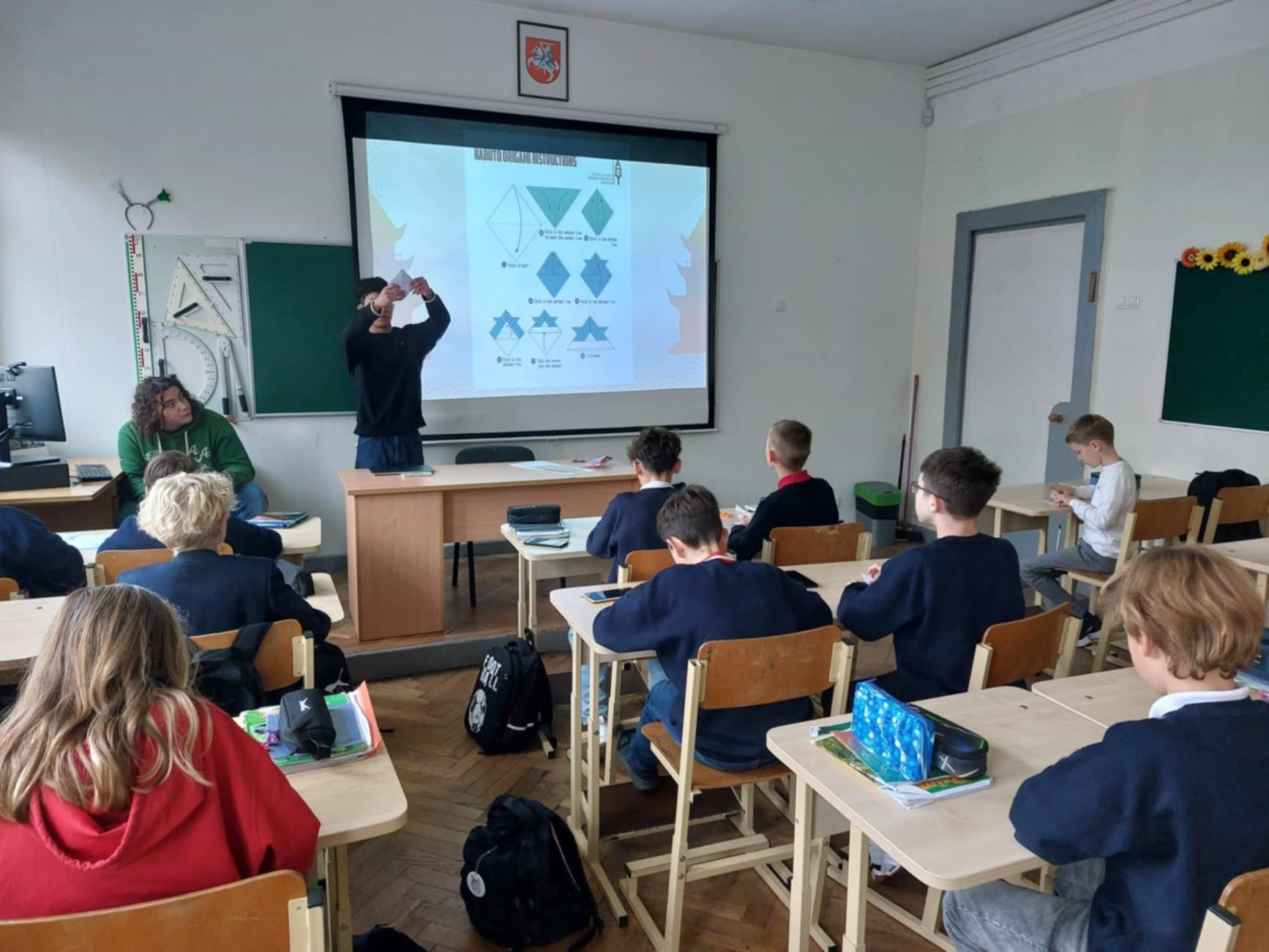 During the lessons, students had the opportunity to learn about the culture and social life of Ukraine, Japan, Taiwan, Hong Kong and Italy and to participate in various creative activities. They made Japanese samurai hats, origami, played Taiwanese YO-YO, took part in a quiz, learned foreign language words and sang.
During the lessons, students had the opportunity to learn about the culture and social life of Ukraine, Japan, Taiwan, Hong Kong and Italy and to participate in various creative activities. They made Japanese samurai hats, origami, played Taiwanese YO-YO, took part in a quiz, learned foreign language words and sang.
“My German saying” competition
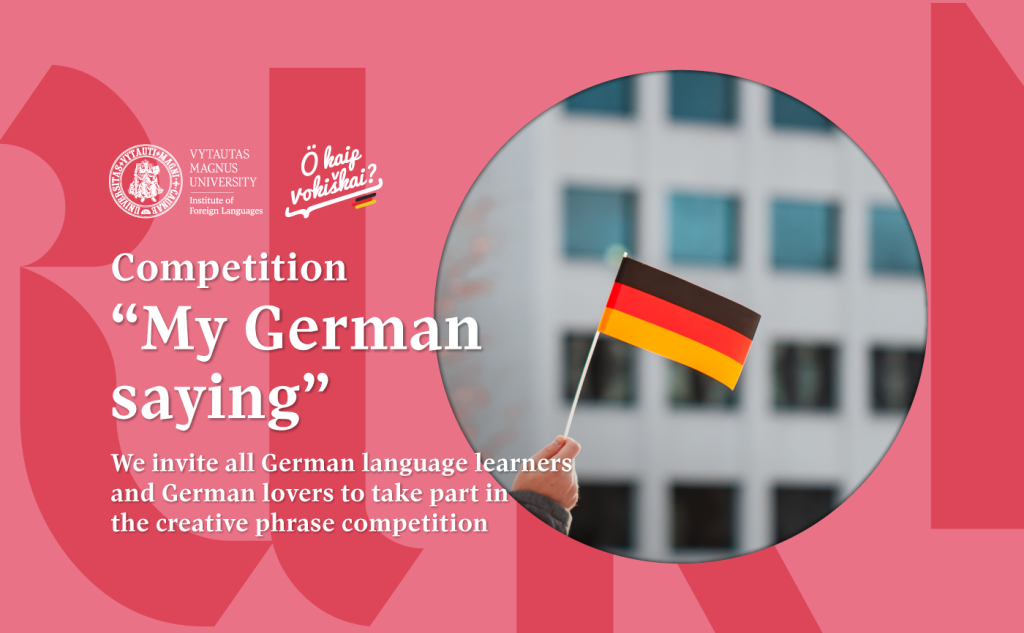 We invite all German language learners and German lovers to take part in the creative phrase competition “My German Phrase”! Share your favourite German saying or phrase. Maybe it’s a saying that inspired you, made you smile or just sounds interesting!
We invite all German language learners and German lovers to take part in the creative phrase competition “My German Phrase”! Share your favourite German saying or phrase. Maybe it’s a saying that inspired you, made you smile or just sounds interesting!
You can choose any expression – from a casual greeting to a very sophisticated one that reflects your attitude to language or life. Explain what it means to you and why it is so important to you.
The saying can be presented in a variety of formats to allow you to express your idea in the most creative way:
- A short video – record yourself or others saying your chosen phrase, add context or narration.
- Photo – capture a moment you associate with the saying and add it to the photo as text.
- Graphic design – create a visual work to illustrate the chosen saying (drawing, poster or digital graphic).
How to participate:
- Choose your favourite German expression or phrase.
- Submit your favourite German expression in one of the above formats and include a short explanation of why it is important to you (up to 50 words).
- Send your entry by 16 October to uki@vdu.lt.
The winning sayings will be published on our website and social media. There are also some fun prizes waiting for you!
Evaluation criteria:
- Creativity (30%) – we will assess how originally you have chosen and presented the expression.
- Emotional connection (30%) – we will look at your personal connection to the saying and its importance to you.
- Accuracy of language (20%) – it is important that the saying is written or spoken correctly.
- Overall impression (20%) – we will look at the overall impression of the work, the involvement and interest in the German language.
We look forward to hearing your creative ideas and wish you luck!
European Day of Languages – focus on languages and cultures
The European Day of Languages was traditionally celebrated at the VMU Institute of Foreign Languages (IFL) on 26th September. The Director of the IFL, dr. Teresė Ringailienė, welcomed the very large number of pupils and students (more than 200 participants) and expressed her satisfaction that we can implement the artes liberales here and now: no matter which field of study we choose, we can learn languages, learn about different cultures, thus developing soft skills and contributing to a broad education, and fostering humanistic values. As artificial intelligence is changing our daily lives and learning habits, IFL invited students and pupils to a lecture “From ABC to AI: Let’s improve languages with technology” by IFL lecturer Vaida Misevičiūtė on how to learn languages using different AI tools.
Although technology makes learning easier and faster, nothing can replace the lively interaction and conversation with a friend. So VMU students took up the challenge and joined the “Language Exchange” activity, where pairs of students, using different foreign languages, communicated on the proposed topics – about their countries, languages and cultures. Meanwhile, schoolchildren from VMU Rasa, VMU Ugne Karvelis, Saule, Raudondvaris, S. Darius and S. Girenas Gymnasiums, KTU and Eruditas Lyceum joined the activity “Multilingual and multicultural meetings”. International students from the USA, the UK, Japan, Taiwan, Korea and Brazil invited pupils to learn about their cultures and languages. During the activities, participants not only listened to interesting presentations, but also actively participated in the activities themselves – dancing, singing, folding origami.
The European Day of Languages celebration not only served as a reminder of the importance of languages and a good mood-builder, but also provided a great opportunity for students and pupils to socialise in an informal setting and, for some, to make new friends.
European Day of Languages 26 September
European Day of Languages 26th of September
Event at Saarland University “Creating a collaborative European university environment”
On September 18-20, an event for language professionals working at Transform4Europe universities was held at Saarland University (Germany) in order to improve cross-border cooperation in language teaching. VMU was represented by the Vice-Rector of Communication, Assoc. Prof. Dr. Vilma Bijeikienė, the Vice-Dean of the Faculty of Humanities, Dr. Jurgita Macijauskaitė-Bonda, the Director of the IFL, Dr. Teresė Ringailienė and the lecturer of the Spanish language, Vigilija Žiūraitė.
During the event, participants exchanged information on language teaching methods, resources and structures, shared best practices and opportunities for collaborative language teaching, and discussed language teaching methods, resources and structures.
In workshops, participants discussed the development of a digital repository of texts, images and audiovisual materials for language learning, the T4EU Alliance’s “language
passport” and the development of a catalogue of languages offered at different universities.
It was very interesting to share ideas with colleagues from different universities in the T4EU Alliance and discuss the challenges and perspectives for future work. It is also encouraging to see that VMU offers the widest choice of languages and provides language learning opportunities for all students.
Dr. Vaclovas and Stefanija Čepukėnai Scholarship Awarded for the Second Time at VMU
On September 10, 2024, Dr. V. and S. Čepukėnai scholarship was awarded for the second time for the promotion and dissemination of the French language and culture.
This year the scholarship was awarded to this year’s graduate of the Faculty of Catholic Theology, Elija Sigita Masalskaitė OSB, a teacher of moral education at Zapyškis Lower Secondary School.
The scholarship award ceremony was attended by Neila Baumilienė, Executive Director of the New York Office of the Kazickas Family Foundation, Milda Krivickienė, the daughter of V. and S. Čepukėnai, Assoc. Prof. Vilma Bijeikienė, Vice-Rector of Communication at VMU, Dr. Teresė Ringailienė, the Director of the Institute of Foreign Languages, the staff of the Department of Student Affairs and the Institute of Foreign Languages. The event was opened with inspiring words by the Vice-Rector of Communication Vilma Bijeikienė who later awarded the scholarship.
Vilma Bijeikienė and Teresė Ringailienė thanked the initiators of the scholarship, Neila Baumilienė and the daughters of V. and S. Čepukėnai, Milda and Rasa (unfortunately, she was unable to participate the event), who are continuing the tradition of patronage and perpetuating the memory of their parents, former VMU professors. The speakers stressed the importance of multilingualism and the attention given to it at VMU, which is celebrating 35 years of restoration: languages and their wide choice at VMU are one of the fundamental values of artes liberales. Neila Baumilienė thanked the IFL staff for their close cooperation in establishing the scholarship and emphasised the joy of giving and sharing. Milda Krivickienė also fondly remembered her parents, the French language teachers of the restored University, Stefanija and Vaclovas Čepukėnai, and the work they had done. It is a real joy that their philanthropic activities and meaningful work have not been forgotten, and that the younger generation can continue them.
Scholarship recipient Elija Sigita thanked very warmly for the opportunity to further develop her skills and shared her plans and the steps she is already taking to become a French language teacher.
Blended Intensive Program Focused on Improvement of Language Teaching

On 3–7 June, Vytautas Magnus University (VMU) hosted blended intensive program (BIP) for lecturers titled SALT: Strategies advancing language teaching, which welcomed language lecturers from Poland, Germany, Ireland, Ukraine, and Lithuania. The program was organised by the Transform4Europe Aliance and the VMU Institute of Foreign Languages.
During the event, the lecturers from the VMU Institute of Foreign Languages shared their experience of language teaching as well as the methods applied while teaching languages at the institute. Each day of the program was dedicated to a different subject: multilingualism and mediation, tools of information and communication technologies and artificial intelligence, flipped classroom, tools for the improvement of various skills (reading, writing, speaking etc.) and non-formal language learning methods.
“I think we managed to reach the goals, because the participants got very actively involved in activities and discussions, shared their insights, experiences, and activities. Moreover, the lecturers will have to each prepare two exercises while applying the methods and tools discussed this week; therefore, the final product will be an e-book with the activities that each participant will apply in their own context”, one of the event’s organizers, the head of the VMU Institute of Foreign Languages, Dr. Teresė Ringailienė, said.

Introducing the more interesting language-learning strategies, Dr. Ringailienė claims that it is particularly beneficial to employ the strategy of flipped classroom, which is based on active use of language during the lecture while performing team-based tasks: not by doing exercises, but by using the language while imitating ordinary real-life situations. Another strategy is functional language teaching, which is based on the function which one wishes to be capable of performing while using that language. Language-teaching strategies that encourage and enable multilingualism are a sufficiently new and widely discussed language-teaching methodology. For instance, “awakening by languages” stands out due to the fact that the learners’ native languages are used as a source of learning (teaching) which helps in the development of language-sensitive teaching and motivates one to be proud of their native language.
“Of course, like in many other fields, language learning is being significantly transformed by artificial intelligence; therefore, the training focused a lot on AI-generated content: how it can facilitate the lecturers’ preparation for lectures and improve the students’ language skills”, the Director of VMU Institute of Foreign Languages noted.
The lecturers who participated in the blended intensive program (BIP) say that the event left a particularly strong impression: not just because of the VMU professors’ lectures and illuminating insights but also the chance to get acquainted with other lecturers who came from different European countries as well as an interesting cultural program.
“The organizers prepared some events outside to “taste” Lithuania, we went to the country, to the straw gardens, which was also a very nice experience. The atmosphere was really great, all the people were very open and approachable, I think we will stay in touch with them. We had fun, we learned something. It was my first time in Lithuania, I hope that I will come back here again”, one of the BIP participants Urszula Michalik, a lecturer from the University of Silesia in Katowice (Poland), said.

Other lecturers who took part in the program also shared positive feedback. Christina Reissner, a lecturer from the University of Saarland (Germany), pointed out that, thanks to the event, she discovered many interesting new things about teaching, communicating with students, and better motivating them. “I enjoyed being here with all the colleagues from everywhere. It’s perfectly organized, and the staff is so open-minded and friendly. Everything was very fun”, Reissner summed up.
In the final presentation of the program, Dr. Ringailienė shared her insights on non-formal/informal language teaching formats that are often utilised by the VMU Institute of Foreign Languages. The institute organizes initiatives that help people get acquainted with various cultures and languages, learn new words, find friends, and communicate with international students. These events include the annually celebrated European Day of Languages and the International Mother Language Day, as well as tandem learning o Lithuanian-Ukrainian or Spanish-English languages, online event series Language Taster, the Primavera En Español festival organized by the VMU Miguel de Cervantes Spanish Language and Culture Club and many other events.
- Activate your English A1-A2: intensive semester course
- Activate your English A2-B1: intensive semester course
- Activate your English B1-B2: intensive semester course
- Alumni
- Conference
- Conferences
- Courses
- Home
- IFL Research Cluster
- İngilizce Hazırlık Kursu “English Prep-Course”
- Language learning
- News
- Research
- Scientific Journal “Sustainable Multilingualism”
- Students
- Подготовительный курс английского языка “English Prep-Course”
- About us
- Contacts


